5 Times You Shouldn’t Use an ATM, According to Finance Experts
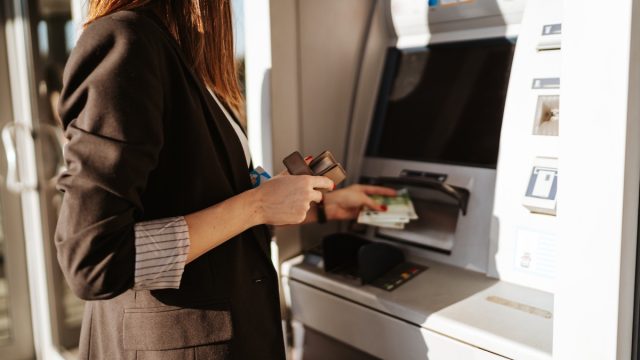
While a lot of our finances can now be handled digitally through our phones, you may still find yourself needing to use an ATM from time to time. After all, most ATMs offer us the ability to withdraw money from our accounts without having to visit our actual bank. But don’t allow this convenience to tempt you into throwing all caution to the wind. Talking to finance experts, we found out that it’s not always a good idea for people to get cash this way. Read on to find out the five times they say you should not use an ATM.
READ THIS NEXT: Never Use Your Debit Card for These 6 Purchases, According to Financial Experts.
5 Times You Shouldn’t Use an ATM
1. It appears to have been tampered with.
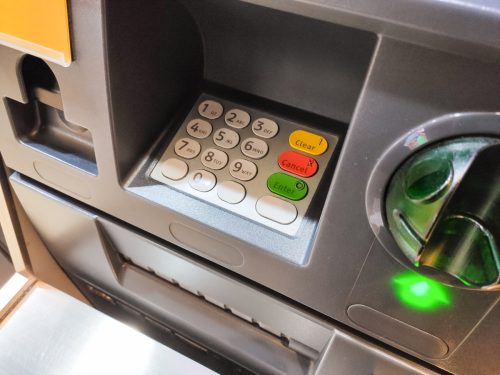
If you notice anything out of the ordinary with an ATM, don’t use it. This may include a “loose or wobbly card slot,” or even “suspicious devices attached to the ATM,” according to Doug Carey, a chartered financial analyst and owner of WealthTrace.
“These could be signs of card skimming devices that criminals use to steal your card information,” Carey explains.
Bailey Schramm, a financial advisor at BizReport, says another sign of this scam could pop up during your transaction.
“If an ATM prompts you to enter your PIN twice, it could signify a skimming device,” she says. “Entering your PIN twice could give them access to your account. If you encounter this prompt, cancel the transaction and report the issue to the bank.”
2. It’s in a poorly lit area.
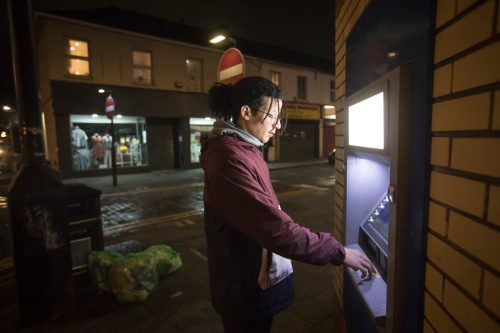
You may not always be able to tell when an ATM has been tampered with, however. This is why experts like Tom Koestermen, a chartered financial analyst and consultant for The Guaranteed Loans, say you should not use any machine that is located in a poorly lit area.
“ATMs in low-visibility areas attract criminals,” he warns. As a result, using these machines can put you more at risk of skimmers or being mugged.
“Please look for an ATM in a brightly lit area with security cameras watching all over you,” he advises. “Criminals do not usually strike brightly lit areas for fear of getting caught.”
3. It seems to be having technical issues.
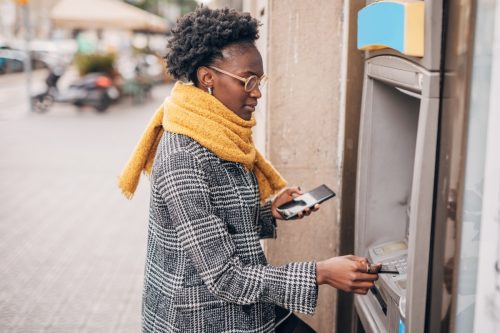
If you notice the ATM you’re about to use appears to be malfunctioning in some way, you might just hope for the best and still try using it. But Michael Hammelburger, a financial consultant and CEO of The Bottom Line Group, advises against this.
“There could be a problem with the machine dispensing cash or processing transactions, which could result in errors or lost funds,” he warns. “If you encounter technical difficulties with an ATM, it is imperative that you notify your bank immediately.”
Trying to use an ATM that might be out of service could also “result in your card being stuck or lost,” Schramm warns. “If an ATM is out of service or displays an error message, it’s best to avoid using it,” she agrees.
For more financial advice delivered straight to your inbox, sign up for our daily newsletter.
4. It’s out of your network.
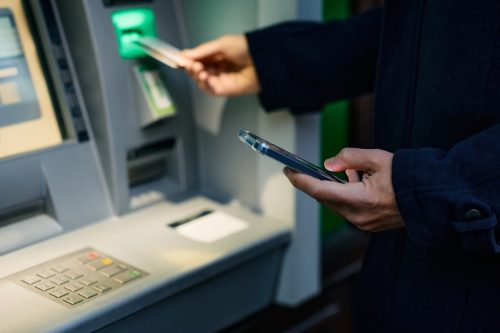
You might be tempted occasionally to use an ATM that’s out of your bank network for convenience. But Fred Winchar, a finance expert and the CEO of MaxCash, says this is “the biggest reason” for someone not to use a certain machine.
“ATM fees can be up to $5 per withdrawal since you get hit with both fees from the ATM and from your bank for using an out-of-network machine,” Winchar warns. “So just go to an ATM that is in-network or go to your bank. Failing that, you can do cash back at a lot of retailers like grocery stores.”
This is also important to remember when you’re traveling abroad, according to Jason Skinrood, a certified financial expert and loan officer with over 19 years of experience in the industry.
“With ATMs in a foreign country, you may be subject to additional fees, exchange rate fluctuations, and other risks,” Skinrood explains.
5. You’re withdrawing a large amount of money.
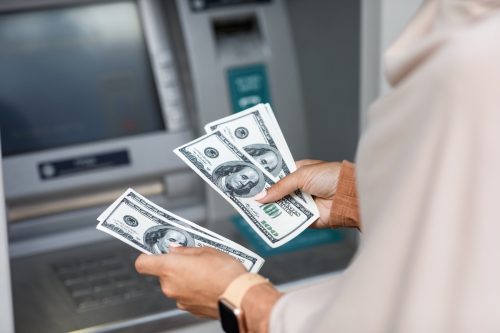
You should also skip the ATM when you’re dealing with a lot of cash. “If you need to withdraw a substantial sum of money, it’s often safer to do so during normal business hours from the inside of a bank,” Carl Jensen, a personal finance expert and the founder of Compare Banks. “This can be used to dissuade theft or other illegal activities.”
This is the same advice Carey says you should adhere to if you’re trying to deposit a lot of money. “If you’re making a large deposit, such as a check or cash, it’s better to use the bank’s own ATM or visit a teller inside the bank during business hours,” he says.
“ATMs may have limits on how much you can deposit at one time, and there’s always a risk of a malfunction or error that could cause you to lose your deposit,” Carey adds.
Best Life offers the most up-to-date financial information from top experts and the latest news and research, but our content is not meant to be a substitute for professional guidance. When it comes to the money you’re spending, saving, or investing, always consult your financial advisor directly.